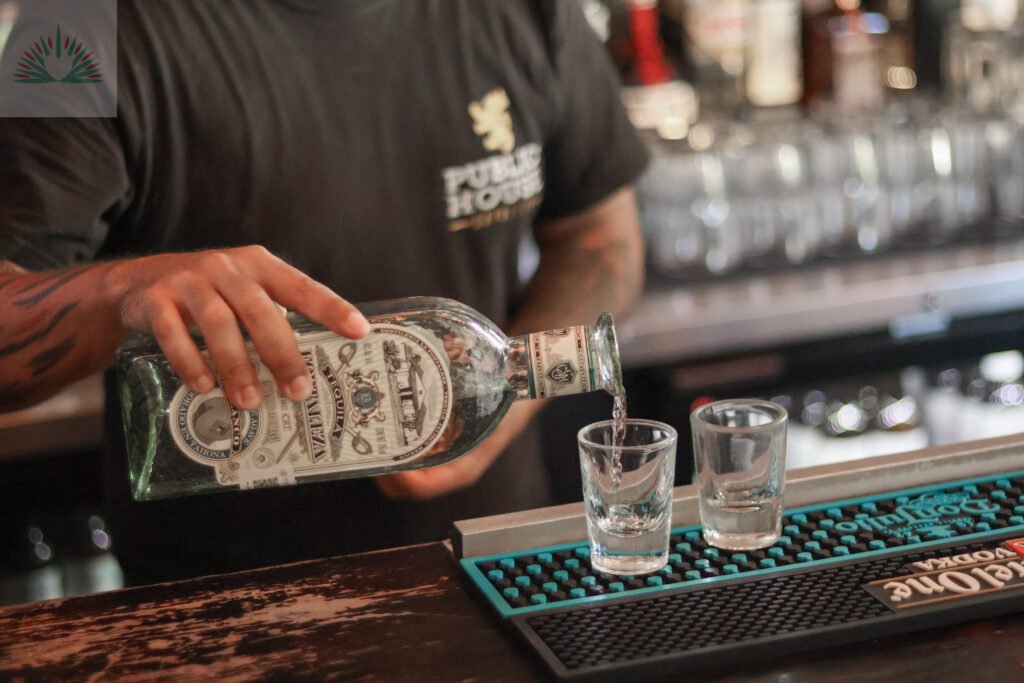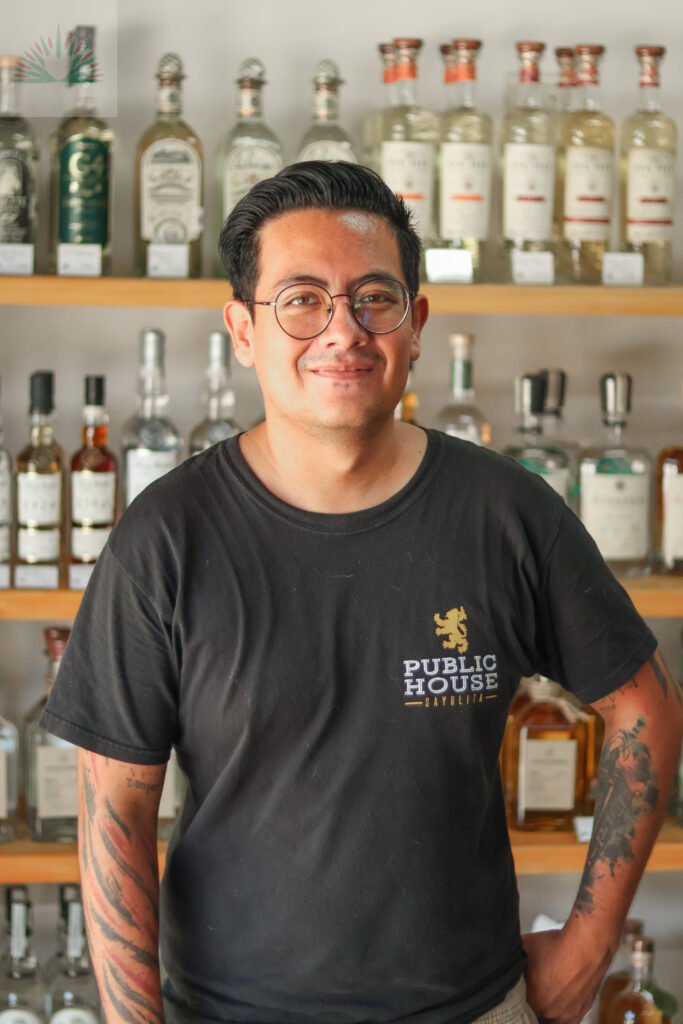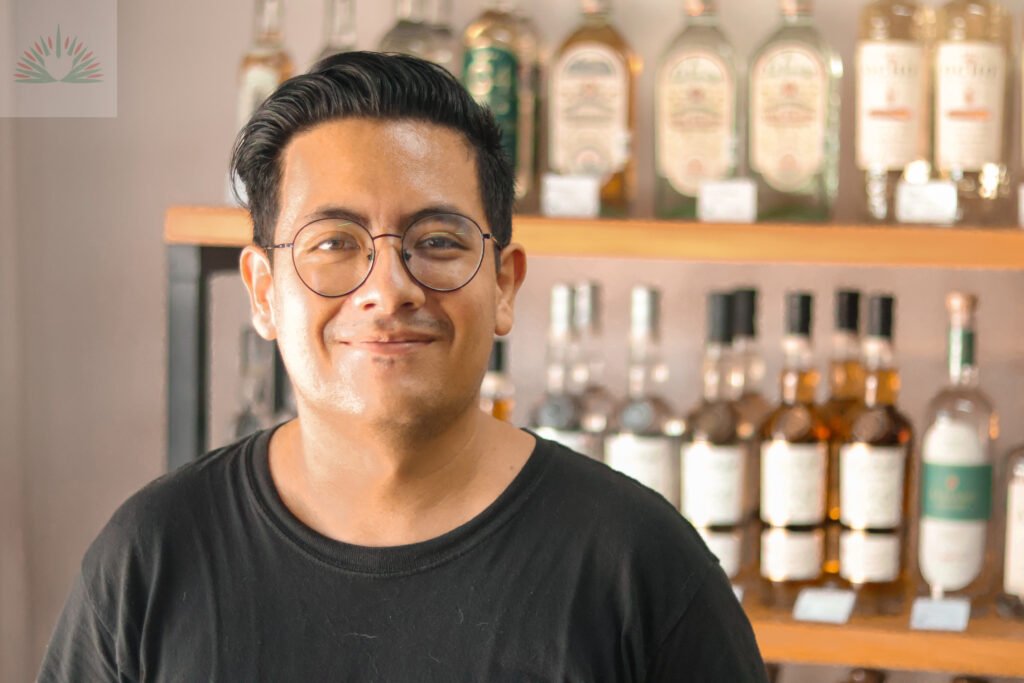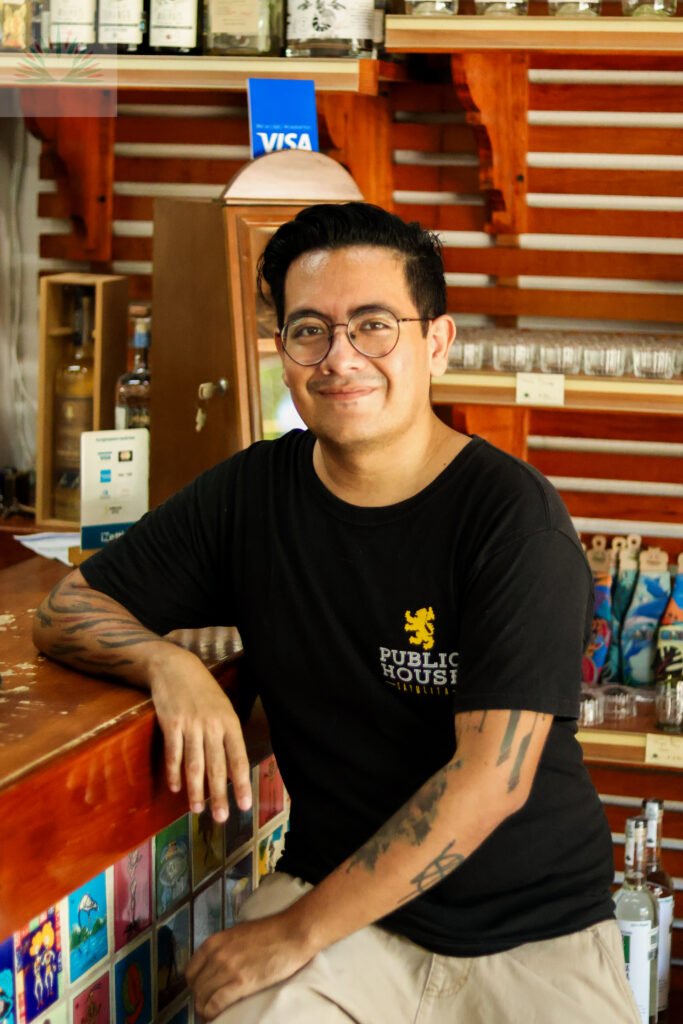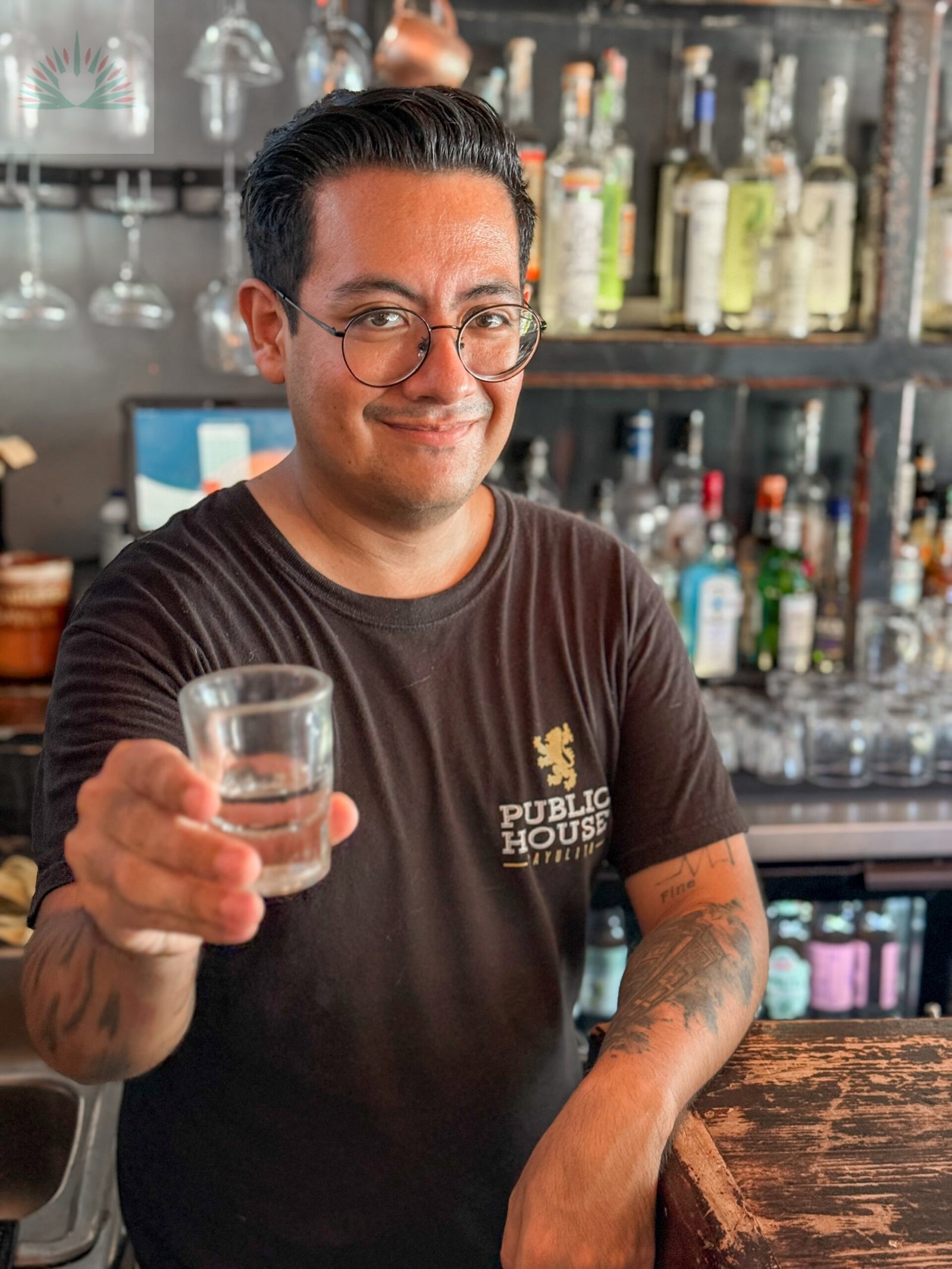A soulful local voice standing firm against the erosion of culture, tradition, and meaning in a rapidly changing Mexico. 🇲🇽 Aldo opens up about the pressures of commercialization, the ethics of tequila production, and the quiet power of living simply and authentically. From his philosophy on slow living and daily joy, to his insights on artisanal vs. industrial tequila, this is a heartfelt dive into Mexican identity, sustainability, and ancestral wisdom.
In a rapidly changing world, simplicity often feels like a lost art.
Today, in the vibrant coastal town of Sayulita, Mexico, we meet Aldo, a man embracing a beautifully simple life amidst the pressures of modernity and globalization. Through Aldo’s eyes, we’ll explore what it truly means to preserve integrity and find happiness in simplicity.
This is a story about resisting the loss of meaning, about choosing simplicity with integrity, and about seeing Mexico beyond the clichés.
“When I see that identity—our identity as Mexicans—gets generalized, or is taken up by other cultures as something stereotypical… on one hand, I feel… it makes me laugh, but not in a critical way. In fact, I actually find it—through my sense of humor—a little funny.
“If I see some gringo wearing a sombrero and saying ‘Happy Cinco de Mayo!’—not knowing that it’s not our Independence Day—it makes me laugh. But at the same time… I see it as an opportunity. An opportunity for them to learn something different.”
The humor is real. But so is the misunderstanding.
Cinco de Mayo isn’t Mexican Independence Day. It commemorates the Battle of Puebla, where Mexico defeated the French in 1862. Yet it’s often reduced to dollar margaritas and fake mustaches.
“No, we don’t eat Taco Bell. But that’s one thing—laughs—that’s the one rule: never mention Taco Bell. Cinco de Mayo? Okay, that’s understandable. But Taco Bell? No. laughs Still, I find it really funny, and honestly, it feels like a little show of affection.
“Because we also believe that all Americans have guns in their homes. I mean, that’s something we generalize too.”
We laugh—because it’s easier than getting angry. But beneath the laughter lives something sacred: a desire for depth, not decoration. A hunger for meaning over noise, for slow beauty in a rushed world.
“For me, living a simple life means moving at your own pace, taking your own steps—no matter how long it takes. Whether it’s choosing to make breakfast at home, or walking five kilometers with a señora just because you enjoy her company. Getting back home might take you two hours… it’s not fast, it’s not efficient, but it’s your way of doing things.
“That’s what makes it simple. And you like it that way.”
But living simply isn’t without conflict. Even Aldo has faced pressures to abandon simplicity for more conventional success. Yet, he resists.
“Yes. In the past, I felt pressure to give up a simple life—mainly because of work. They needed me to work 10 hours a day, for less than minimum wage, and to commute to the other side of the city.
“That was about 6 or 7 years ago. And it wasn’t something I liked. I didn’t enjoy that typical routine. I’d rather work here with these people.
“I don’t know what next week will look like, but that’s something I enjoy now. I don’t have much free time, but I’m not being chased around by someone with a clipboard. I still feel pressure—but I don’t like it.”
“And what made you resist?”
“Mmm… happiness, I think. I’d rather feel mentally at peace than have money and be stressed. [laughs] Yeah.”
This mindset didn’t appear from nowhere—it’s deeply rooted in Aldo’s upbringing.
“I feel like it comes more from the values I was taught at home—by my parents. Because yeah, my parents had their own pet business. They could’ve expanded, made more money, but they chose instead to live a more relaxed and simple life that still supported all of us—me and my siblings. We had food on the table, didn’t pay rent, and we were able to take vacations regularly—sometimes even more than once a year. They could have done more, but they chose to take a step back.
“And I think that’s where my mindset comes from: doing things… How do I say this… if, I have a formula that already works— why change it?
“I decided to come visit them because it had been a long time since I’d seen them, and I just wanted to stay for three weeks. And honestly, I think I’m still in those “three weeks.” I arrived with a backpack, a couple changes of clothes… and never went back.”
Aldo recalls a legendary story his father told him, illustrating the essence of simple living.
“There was a fisherman on the beach. Every morning, he’d go out to pull in his nets and come back on his boat, with his cooler full of ice, and he’d sell the fish to the people nearby. He’d save a couple for himself—for lunch and dinner. And the rest of the day, he’d just chill in his hammock.
“One day a gringo comes along and says, “Hey, why don’t you open your own store and start putting all the fish in there? You could buy more refrigerators and have everything available for a lot more people. And then, after like 20 years, you’ll have saved enough to retire.”
“And the fisherman says, “Well… I’m already doing that. I’m already saving for myself. I relax every day in my hammock with my caguama (a big beer).”
“You don’t need a luxurious life. Just a simple one.”
“As Mexicans, we almost always end up doing what we want. That’s something I feel others will never fully understand. I’ve seen it—not with everyone—but I’ve seen some Americans try to change certain customs. They’ve tried… but they won’t change.
“Like the fireworks, for example—people say they bother animals. I’m sorry, but in small towns, on farms, in our traditional Mexico—things like that aren’t going to change anytime soon. It’s not something that’s going to “progress.” It’s something that will always stay with us.”
There’s a friction here. Foreign values versus cultural rhythm. Sometimes things don’t need to be fixed, they need to be accepted.
So where does someone begin—if they really want to know the true heart of Mexico?
“You have to understand—we’re very open people. We can welcome a lot of people with open arms. But to tell someone ‘I love you,’ ‘you’re family to me’—that’s hard. There are steps. These things take time.
“You’ll always be welcome, but there are things that can’t be rushed.
“And it has happened to me a lot with foreigners, that I meet them and they’re telling me: ‘Ah, I love you, I love you.’ And I say: ‘Thank you… but I don’t feel the same. I’m sorry, but I need time. I need to get to know people.’
“We’re passionate people. That’s something you’ll need to get used to—these kinds of things take time. It’s not like a telenovela.
“And we’re dramatic. We live for the drama.”
This isn’t a telenovela. It’s real life—unpolished, passionate, and beautifully slow.
And while some stereotypes sting, others? We claim them with a smile.
“At the end of the day, I feel like most of us… yeah, we are a stereotype. If you ask me, ‘What’s your favorite food?’ Tacos. Tacos! [laughs] ‘What do you like to drink?’ A Coca-Cola.
“I like spending time with my family. I like going out dancing. I like watching and singing along with mariachi.
“So when someone caricatures us, I say, well, As a Mexican, you put your boots on and say: ‘Yes. Yes, I am.’ We’re not all the same, but yeah—I am.
“For example, I might be listening to Banda one moment and Metallica the next. But in general, if someone stereotypes us… well, yeah. We are.”
When the world around you changes, what stays?
“I feel like something I’ll always protect about my identity is my values. I’m always going to be the one saying, “¡A chingar! To hell with it—let’s take a shot of tequila!”
“That’s my style.
“I’m the kind of person who says what I think, straight up. And I’m not afraid to offend someone with my opinion. That’s something I’ll never lose—no matter how much things change.
“I’ve seen that a lot of people who come from abroad… they can’t say certain things because someone might get offended or feel insulted. But I tell them: it’s not about what we say—it’s about the intention.
And for us Mexicans, everything is a joke. It’s always going to be a joke. We have a really dark sense of humor. That… I feel like that’s part of our identity, and it’s never going away.”
There’s freedom in contradiction, and pride in being exactly what you are—without apology.
And for Aldo, nowhere does that contradiction feel more alive than in a bottle of tequila—especially when the lesson came from a gringo in Denver.
“So this gringo from Denver shows up and starts asking me about raicilla. I tell him, ‘Okay, I have a bottle, but I don’t know anything about it. Try it and tell me what you think.’ He says, ‘Sure,’ and he kept coming back for that bottle.
“And then we started talking—well, he started telling me about tequilas, mezcals, raicillas… things I didn’t really know much about. I only knew the typical ones: 1800, Don Julio, Cuervo, that stuff.
“He starts teaching me the difference between a tequila made with love and integrity… and one that’s just mass-produced for money. Which is exactly the topic we’ve been talking about now.
“So this guy starts training me, and he inspires me to learn more about all of it. And me, as a Mexican—where we come from is tequila—and yet a gringo is the one who taught me about it. It’s kind of funny.
“But honestly, when you have people from other countries showing this kind of love for the culture—more than a lot of Mexicans even show—I’m like: okay, this is strange. But I want to learn about it. I want to follow that path.”
But tequila isn’t just a drink—it’s a living tradition reflecting the heart of Mexico. In a changing Mexico, preserving traditions is crucial. Aldo sees tequila production as a powerful symbol of integrity.
“It’s a tradition. Definitely not just something cultural—it’s almost a ritual. You know what I mean? From the moment you jimar the agave, to cooking it, crushing it, fermenting it, and finally distilling it… It’s a process that’s been done for decades, for hundreds of years—by generations, by so many people—maybe hundreds of thousands of Mexicans.
“More than just a drink, that’s what I think tequila represents. It’s not just about getting drunk— it’s about enjoying life. I know I say that a lot. [laughs]
“But there’s something in the land…Tequila, mezcal, raicilla—all of them are part of Mexican culture, stretching from tribe to tribe, from north to south.
“Honestly, what we now call tequila, mezcal, or raicilla—those are newer terms. This kind of work has been done for hundreds of years. And it’s a part of Mexican culture that has been disappearing.
“Thank God there are still many producers doing it the way it should be done— the way their families always respected these sacred spirits— and they keep passing it down, generation after generation. And what we try to instill in people is that it’s not just about getting drunk.”
Aldo highlights brands like Fortaleza (Los Abuelos) for their integrity.
“For me, what sets the brand Fortaleza—or Los Abuelos—apart is that they’ve always tried to maintain a certain standard. A good tequila doesn’t just take time—it takes care. And it doesn’t need a lot of machines.
“What it does need is people who have knowledge, people who are willing to respect tradition— so that you don’t just end up with a good product, but something truly well made. And that’s also one of the reasons it’s one of the best tequilas in the world.”
Therefore, the preservation of traditional methods isn’t just cultural—it’s vital for health and authenticity.
“I feel like maintaining the quality of these processes—without using any chemicals or additives—is really important.
“Production matters not just for those who make it, but also for those who consume it. Tequilas made with highly industrial processes, with additives, acids, or artificial flavorings—those are very harmful to the body. They can cause… well, they’re more likely to cause “accidents”. They’re what lead to what we call la cruda—the brutal hangover the next day. That’s much more common when you drink products that weren’t made artisanally, when corners were cut using little tricks that may increase demand and profits… but what you’re really selling is harm to people.
“When you distill something that’s completely pure, tequila should only contain water, natural yeast, and cooked agave. There shouldn’t be anything else in it. But unfortunately, 90% of what’s on the market isn’t that. Those are products we can’t even really call tequila. And unfortunately, because of government regulations, the producers who do take their time and care about what they make can’t defend themselves much.
“Real tequila takes five to seven days to produce, minimum. And like I said, there are big companies who claim they can make it in a single day. I’m sorry, but that’s not possible. That shouldn’t be called tequila. It’s closer to vodka than anything else.”
Sayulita has changed dramatically after COVID, becoming increasingly expensive due to tourism and Airbnb culture. But despite these pressures, Aldo observes something unexpected.
“Honestly, I don’t think there’s been that much culture that’s being lost. Actually, I think it’s being reinforced a bit.
“Most of the foreigners who come here—like Nick, who was with us a little while ago—they want to learn Spanish, they want to go to the rodeos, the patron saint festivals, Sunday mass… they want to learn how to make tortillas by hand. I feel that the people who at least come and stay here for a long time, it’s not… they don’t want to change this kind of culture.
“Yeah, there are a few things I’ve noticed that have changed a bit. For example, now there are taxis right out front. A lot of people get around in golf carts and ATVs. But I’ve also seen a lot of Mexicans buying golf carts or motorcycles too—and we’re all doing the same thing.
“So I don’t feel like anything is being taken away—it’s just evolving. It’s more of an integration than a loss.
“I learned this word very recently. It’s called dishbé. It’s a Zapotec word. It’s used when you give a toast. But this toast isn’t just ‘cheers.’ It’s about giving thanks for this moment, for the paths that brought us here, for the loyalty, the values that led us to this exact moment where we can raise a glass together. That’s what that word means.
“And I think it’s such a simple act—one that everyone does. And I love that. It makes me feel more and more grateful to be here, to be alive… We never know when we’ll die or move on to something else.
“Enjoying those little moments, saying salud… that’s when you’re really living.”
What does Aldo hope never changes?
“My liver. Heh heh heh heh. That’s a joke. Ha ha ha ha ha.
“In my future, one thing I want to remain intact is this: that people keep coming, and that we can keep doing what we do every day—which is to help people discover parts of Mexico they haven’t seen before.
“I feel like that’s something I don’t want to change. I want there to always be new people we can—maybe—dress up, take a shot with, show them the tacos, or whatever it is. And I want that to stay the same. I really enjoy working with people.”
For Aldo, it’s not tourism—it’s a quiet ritual of connection. To welcome without performance, and to live without fear—that’s what makes it sacred. Because fear is natural. But giving up your curiosity? That’s a choice.
“What I want people to understand after hearing all of this is that life is meant to be enjoyed. We never know when things are going to change. If you have the chance, say yes. Try things.
“We’re all afraid of things, but we should always try something new. Venture out. If one day you’re scared of living a routine life, if you’re afraid of going to the movies alone—go alone!
You don’t know whether you’ll enjoy it or not until you try.
“And I feel that we, as human beings, what holds us back the most is fear. We’re always going to be afraid. But only the brave will be able to break through that fear and dive into what they truly love.
“If you’re afraid to leave your city, if you’re afraid to start something new, launch a business… yes, there’s always the risk that you won’t like it or that it might fail. But at least you tried.
“And I think that’s what matters most for us as human beings: That we tried.”
If Aldo could send one message from Mexico to the world, it would be an open invitation for authentic discovery:
“Mexico holds a little bit of everything. It’s not just beaches and Mexico City. There are so many places to explore, so many people to meet. From the north to the south, Mexico stretches wide and deep, a land of many cultures, many paths, mountains, hills— and every kind of climate you can imagine.
“Don’t just come here to do what everyone else does. If you go to a resort, don’t stay locked behind the gates. Step out. Wander. Go visit the neighboring town.
“Find the small village. Take the bus. I hardly ever see people other than Mexicans take the bus. I want to see more foreigners taking the bus. I want to see people live a bit of everyday Mexican life, to try it for themselves, see if they like it, in every corner of this country. Not just in the curated pockets tourists are shown— but everywhere.”
Mexico doesn’t need you to save it. It needs you to see it—truly. Not just the colors or the food, but the integrity in the simplicity.
Live like Aldo, a journey that is a vibrant testament to a Mexico filled with humor, resilience, and authenticity. Meet people. Ride the bus. Laugh at yourself. And if someone offers you a shot of tequila and a story—say yes.
This is the essence of 365 Days of Tequila—sharing stories that teach us, challenge us and honor Mexico’s vibrant culture through the lives of its extraordinary people.
Because the real Mexico? It’s right there, past the resort, behind the barrel… and ready to be lived.
